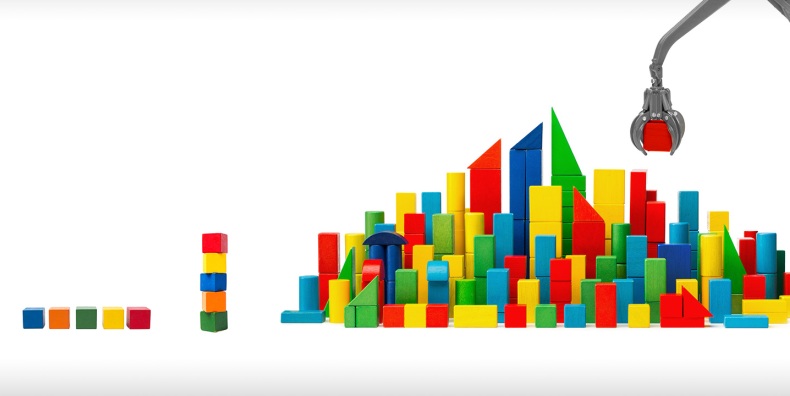 Had Google not flipped the machine learning switch for Google Translate, it would have taken 10 years for it to bring the context in language translation that it has achieved now. It took a machine a single night to become the best player in the Atari game ‘Breakout’, responding only to the defined outcome of maximizing the score.
Had Google not flipped the machine learning switch for Google Translate, it would have taken 10 years for it to bring the context in language translation that it has achieved now. It took a machine a single night to become the best player in the Atari game ‘Breakout’, responding only to the defined outcome of maximizing the score.
It is perhaps due to instances such as these that Charbel Sarkis, Sector Lead, Ecommerce, Telecom and Technology for Google MENA says that artificial intelligence (AI) and machine learning have the potential to bring about an even bigger change than the internet did or that the proliferation of smartphone entailed.
“AI will change us as businesses, as marketers and as individuals,” Mr Sarkis said, reminding how the pace of change has only been accelerating year after year.
Speaking to a group of some of the region’s most known marketers at a Starcom-led initiative, Mr Sarkis said, “We did not instruct the machine on how to play but only optimized it to outcome – that is the power of machine learning, and it is impacting every single walk of our lives.”
One of the pressing issues for CEOs and CMOs today is to be able to gauge the constantly changing consumer behavior. As consumers become more demanding, they seek personalization and expect the same benchmark as the likes of Uber and Amazon in all their experiences.
Yet another concern is whether the marketing dollar is being spent efficiently and if it is reaching out to consumers as they seamlessly move between devices.
As acronyms and measurement objectives become more complicated, there is also a concern whether marketers are optimizing towards the right outcomes that mirror the broader business objective of the team.
“Machine learning has the promise to address all of these challenges through smarter and more efficient marketing. It lets us know more about our audience and helps us get the noise out of the way and optimize for what really matters. It is evolving an exponential method, and if we have not started to understand and embrace this yesterday, we would not be able to keep up,” Mr Sarkis stated.
At present Google has employed machine learning in several of its offerings including Google Assistant, Google Photos, Search and YouTube among others.
From a brand’s viewpoint, it is imperative to understand how machine learning can help marketing become smarter. “The old paradigm of marketing has made way for a much more complex user journey. Machine learning helps in taking a step back and identifying the outcome and qualifying content. It helps in understanding the path to purchase on the go,” elaborated Mr Sarkis.
In Between The Layers
Once, audiences were identified in demographics and psychographics. The reality now is very different. Audience footprints from activities on the web, the media they use, the content they consume and several other data inputs can be used for automated recognition of audience data patterns.
These audience data patterns give unprecedented insights into consumers. However, the abundance of data inputs also makes it challenging to capture and understand it all. Machine learning can simplify the process as it uses CRM (customer relationship management), adding media and internet signals, leading to interesting correlations. It adds several layers of web data, monitoring the path to purchase to define a more precise set of relevant audience.
“Machine learning can indicate purchase behavior. It can reach the most vital customers and understand what they want. User journey today can be simple or very complex. It is impossible to decide how much you need to bid to acquire a certain consumer at a particular time. Machine learning will help focus on the right objectives. Let the machine do the work for you,” Mr Sarkis advised.
Creativity: Critical Today
“The more data we have, the more important creativity becomes and not the other way around,” Alex Brunori, Creative Agency Head MENA for Google essentially summarizes what the true differentiator will be in a world where technology is increasingly becoming all powerful.
As everything in the industry gets automated, the logical result is of increased commoditization of products and services. Mr Brunori’s argument is that in such a background, the only place to win against the machine is in the application of human intelligence and creativity. “Machine learning is a super powerful tool that is proceeding at an almost concerning speed. Very soon, we will have super sophisticated tools and machines will do a lot of work,” he stated.
Mr Brunori highlighted the several advantages that this brings to the table, adding that data is the ‘illuminator’ of Google’s approach to marketing. “Data can tell the human side of the story. It can help visualize and it can help transform a story,” he said.
When the likes of Google study the trends of what people search, from a pure sentiment viewpoint, there are concerns but there are also signs of hope and positive developments. For Mr Brunori, this itself indicates much about consumer mindsets and moods. He reminded that search is also the ultimate expression of intent.
“It is a very personal relationship – people search for things they want to know about. Unlike social platforms, where people wear a mask, search is 100 percent honest,” he commented.
Mr Brunori cautioned that data is only a dump of meaningless things unless marketers apply intelligence to it. “The moment you do that, the whole process becomes meaningful. Feelings, for instance, can be searched. It is data and it can be reversed and used in promotions,” he pointed out. He explained that search also helped in personalization at scale.
In the age of assistance, consumers are willing to exchange personal data for a superior product and service. “We see this in several services,” Mr Brunori said, adding, “As this trend picks up further, interface will play a big role. If once storytelling took place in novels and then in movies, storytelling of this age is in the interface.”




